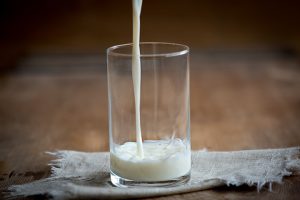Health
Here’s Why You Shouldn’t Rely On Milk-Alternatives For Iodine
Naturally produce milk from cows is a great source of iodine and if consumed on daily basis, can contribute significantly for our daily consumption of the mineral. Milk alternatives however, can cause iodine deficiency as shown in a recent study published in the British Journal of Nutrition.
The Study
According to Science Daily, this is a study, first of its kind in the United Kingdom wherein the researchers from the University of Surrey analysed 47 milk alternative drinks like soya, almond, coconut, oat, rice, hazelnut and hemp and examined the iodine content present in them. The ones marketed for children and infants were left out of the study and the 47 others were compared with the iodine amounts with cows’ milk.
It was found that a large number of these alternatives didn’t have the adequate levels of iodine and that the concentration levels were around 2% of that in cows’ milk. The naturally produced milk including dairy is the main source of iodine in the UK. However, the alternatives were found to not be adequate substitute.
“Many people are unaware of the need for this vital dietary mineral and it is important that people who consume milk-alternative drinks realise that they will not be replacing the iodine from cows’ milk which is the main UK source of iodine. This is particularly important for pregnant women and those planning a pregnancy,” said Margaret Rayman, Professor of Nutritional Medicine at the University of Surrey to Science Daily.
“A glass of a milk-alternative drink would only provide around 2 mcg of iodine which is a very small proportion of the adult recommended iodine intake of 150 mcg/day. In pregnancy, that recommendation goes up to 200 mcg/day.”
Why Milk Alternatives Cannot Replace Milk

Dr Sarah Bath, Lecturer in Public Health Nutrition at the University of Surrey and registered dietitian, told Science Daily, “Milk-alternative drinks are increasingly being used as a replacement for cows’ milk for a number of reasons that obviously include allergy or intolerance to cows’ milk. Worryingly, most milk-alternative drinks are not fortified with iodine and their iodine content is very low.”
She further adds about the alternatives and says, “If avoiding milk and dairy products, consumers need to ensure that they have iodine from other dietary sources, where possible. More information on good iodine sources such as white fish can be found in the British Dietetic Association Iodine Food Fact Sheet. If considering taking an iodine supplement, they should avoid kelp which can provide excessive amounts of iodine.”




















